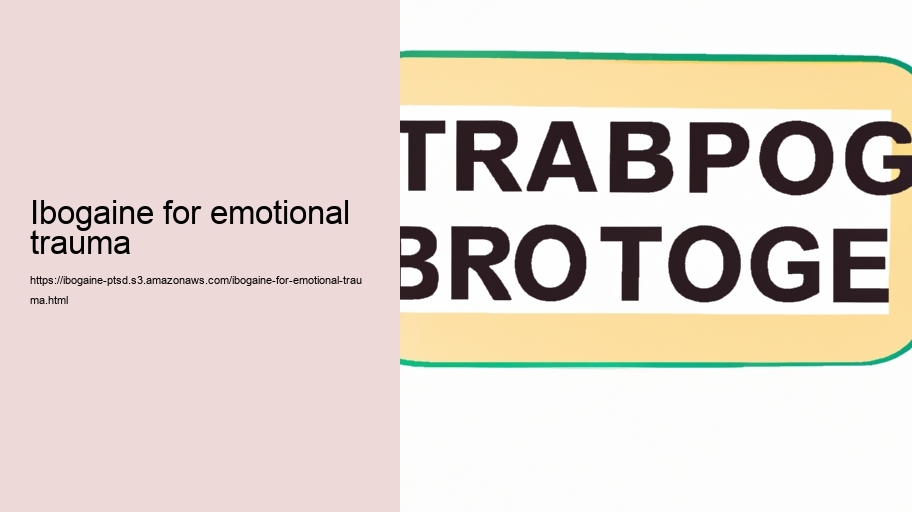Ibogaine: A Controversial Beacon of Hope for Emotional Trauma
Emotional trauma is an invisible wound that can deeply scar the human psyche, often with long-lasting effects that ripple through a person's life. Traditional therapies, while beneficial to many, do not always provide the solace needed for healing. Amidst this search for alternative treatments, one substance has emerged from the shadows of controversy and intrigue—Ibogaine.
Ibogaine is a naturally occurring psychoactive compound derived from the root bark of the African shrub Tabernanthe iboga. Traditionally used in spiritual ceremonies by indigenous West African communities, it has gained attention in Western medicine primarily for its potential in treating addiction. However, recent discussions have expanded to explore its use in addressing emotional trauma.
The premise behind Ibogaine treatment lies in its unique ability to induce a profound psychological experience or "awakening," which proponents argue allows individuals to confront deep-seated emotions and memories. This process is said to facilitate a mental reset and offer individuals insight into their traumatic experiences, potentially leading to therapeutic breakthroughs.
To understand Ibogaine’s role in emotional trauma therapy, we must delve into both its physiological impact and psychological implications. When ingested, Ibogaine affects several neurotransmitter systems simultaneously; most notably, it serves as an agonist for serotonin receptors which are intimately involved with mood regulation. The alteration of these pathways could ostensibly contribute to mood stabilization and reduction in anxiety-related symptoms associated with trauma.
Patients who have undergone Ibogaine therapy often describe experiencing vivid visions or dreamlike sequences that allow them to revisit critical moments from their past—moments often tied to their emotional wounds. During these introspective journeys, they may gain new perspectives on old pains, thus catalyzing a healing process that might otherwise have remained elusive under traditional care regimens.
The anecdotes surrounding Ibogain's transformative power are compelling but come with considerable caveats. One cannot ignore the legal status of Ibogaine; it remains classified as a Schedule I substance in the United States—deemed as having no accepted medical use and possessing high potential for abuse. Studies on Ibogain are sparse due to stringent regulations surrounding such substances; hence scientific data supporting its efficacy is limited at best.
Moreover, there are risks associated with its use; potential side effects range from nausea and ataxia (loss of control over bodily movements) to more severe cardiovascular complications which can be fatal if not properly managed within clinical settings equipped with emergency response capabilities.
Given these concerns, many healthcare professionals remain skeptical about embracing Ibogeine as part of mainstream therapeutic practice. Nevertheless, some therapists specializing in psychedelic-assisted treatments view it differently—they see it not just as a drug but rather as an adjunct tool within broader integrative strategies aimed at healing trauma.
For those who advocate for wider access to alternative interventions like Ibogaine therapy—their argument rests upon principles of autonomy and compassion: that individuals suffering from enduring emotional pain should be afforded every opportunity to find relief and closure—even if those methods lie beyond conventional borders.
In conclusion, while promising stories point towards significant benefits when using Ibogeneine among individuals grappling with deep-rooted emotional traumas—it would be imprudent not dismiss cautionary tales underscoring its risks.
